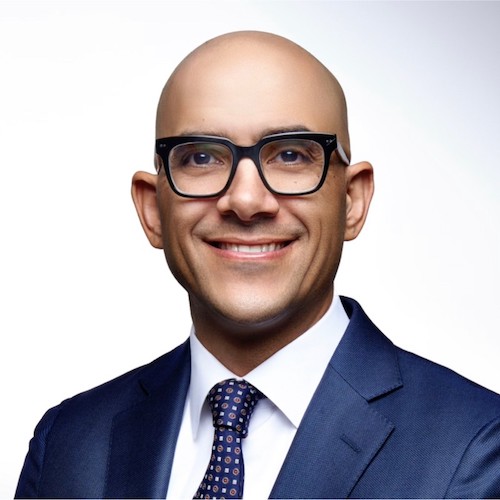
The nine-to-five in-office experience as some once knew it likely isn’t coming back — at least not for five days a week. Employees’ expectations about work have changed, enabled by technology, sparked by the pandemic and accelerated by a renewed value of time for personal passions that once went to long commutes and in-person obligations. As the workforce transforms, so too should our ways of fostering mentorship.
Traditionally, in-person connectivity allowed people to meet with peers and leaders in the workplace. In my experience, fruitful mentorship has come from meaningful and transparent communication, and experiences that made me feel a true sense of belonging in the workplace. While I’d like to believe that my drive and intelligence alone helped me succeed, I know that my mentors and sponsors were instrumental in getting my foot in the door and that they played a huge role in my success throughout my career.
In today’s virtual environments, connectivity can feel more challenging than ever as it can be harder to foster emotional transparency and trust. To account for that, the way we cultivate coaching, mentorship and sponsorship will need to change.
How companies can foster mentoring
The first step is to acknowledge that coaching, mentorship and sponsorship are meant to be different. A coach helps a person succeed in their day-to-day role to help them achieve their career goals, while a mentor shares their own experience and learnings to help someone develop — the key is to cultivate the right mentorship at the right time in a person's career. And different still is sponsorship, where someone in a position of power deliberately opens doors and advocates for opportunities and career progression for those they sponsor.
In my own experience, coaching and mentorship at PwC have been integral for not only my own development but also for building on the firm's culture of belonging. I’ve seen the firm create strategies for intentional support, and that doesn’t happen overnight. It requires accountability and leadership-driven initiatives across all levels of career progress. Acknowledging that societal, systemic inequities have created an uneven playing field for achievement is also important. Further, it requires understanding that mentees from different backgrounds need different things from their mentors to succeed.
Deliberate planning and programming can help mitigate that. PwC’s Thrive initiative guides entry-level and experienced Black and Latinx associates through an innovative, two-year experience of workshops, networking and leadership engagement. At the experienced level, Enrich is designed to help women and racially/ethnically diverse employees identify additional skills and cultivate mentor relationships that can help them toward the journey of becoming a partner, the owners and leaders who drive and oversee the firm’s strategy. In addition to the benefits to mentees, both programs help reinforce to mentors the importance of taking the extra step to become sponsors.
PwC has also created pathways beyond the firm by collaborating with more than 2,200 leaders across various industries and organizations. For example, CEO Action for Diversity & Inclusion launched a first-of-its-kind mentorship initiative in March 2022 that brings C-suite mentors and senior, diverse leaders from signatory organizations together to help navigate the many factors that play into professional advancement.
PwC’s strategy enables employees to receive mentorship and coaching throughout their career journeys that set them up for success.
Challenges and opportunities in the new workplace
People thrive when their daily experience matches their personal values — a balanced workload, flexibility, a sense of purpose and belonging and meaningful relationships. But remote work has made it harder for people to develop those connections. What can companies do to cultivate relationship building while navigating the siloed nature of remote work?
Here are some ideas:
- Deliberate teaming: Fostering more opportunities for employees and teams to bond is vital to keeping the doors for mentorship open, especially given the nature of remote work.
- Intentional referrals: Sponsors can use their influence to provide opportunities for mentees by referring them to programs they could not otherwise access.
- Inclusion networks: Creating spaces for people of shared backgrounds or interests to organically connect can help create strong relationships.
- Cross-company mentorship: Working with external companies to pair mentees with leaders from different organizations, such as the initiative launched by CEO Action for Diversity & Inclusion, can expand networking circles.
- Expanded networks: Creating opportunities for informal gatherings can be a great way to get various levels of staff together and helps them get visibility with other teams or leaders they wouldn’t necessarily work with in their day-to-day.
The future of mentorship
A good mentor experience can be a boost for employees to get them from where they are on their career journeys, to the ultimate destination they aspire to reach. Leadership development is powerful, but when it is combined with intentional coaching, mentorship and sponsorship, we can change outcomes at dramatically higher rates.
Image credits: Surface/Unsplash

Sammy Miller is a Partner in PwC's Trust Solutions group, where he serves both multinational public and private companies in the energy, utilities, and industrial products and service sectors. He has 20+ years of experience in international coordination, business combinations and valuations, SEC reporting, oil and gas accounting, internal control over financial reporting for multinational organizations, FERC regulatory reporting, and joint venture accounting and reporting.Sammy is a graduate of the Mays Business School at Texas A&M University and the University of Houston as well as a Certified Public Accountant in Texas and California.














